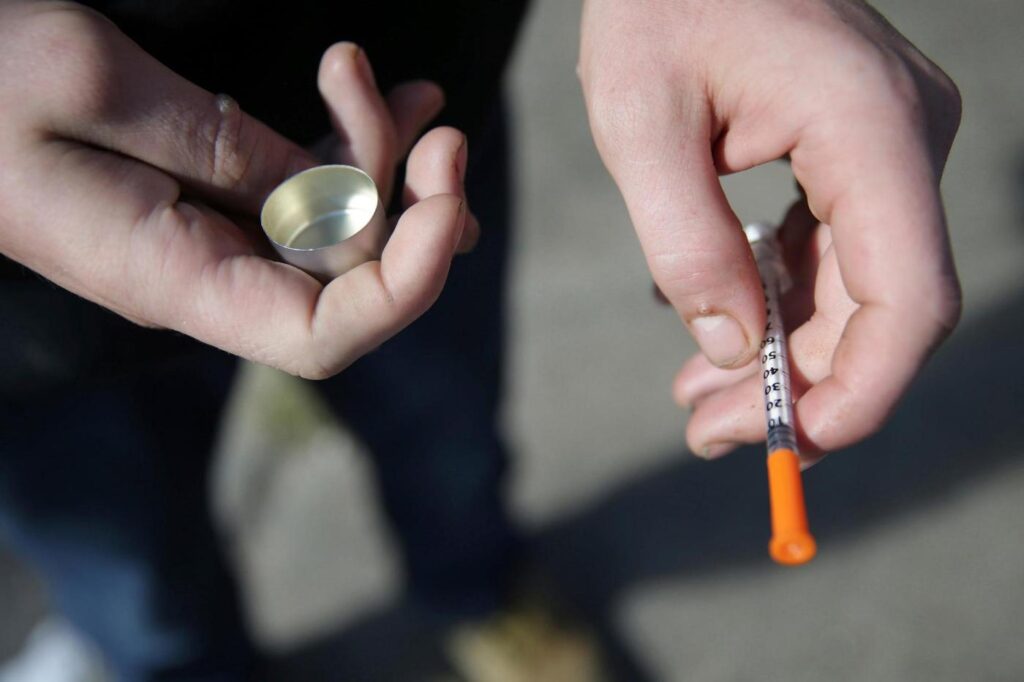
When I was a lieutenant with the Redondo Beach Police Department I witnessed the ways drug criminalization policies failed time and again, and hurt the people they were intended to help.
Those policies have been unsuccessful because they have failed to treat substance use disorder as a public health issue and focus instead on placing criminal blame for continued use on those struggling. The long-term impacts of criminalization can keep people from getting jobs and exclude them from public assistance; it can separate families and cause a lifetime of discrimination. Because of this, criminalization doesn’t effectively dissuade people who are struggling with drug addiction from using them and instead can contribute to perpetuating the cycle of use.
A much safer alternative to criminalization and one that our law enforcement community and public health officials should pursue are the Overdose Prevention Programs (OPPs) proposed in Senate 57 by Sen. Scott Wiener, D-San Francisco.
Since 2011, opioid-related overdoses have been the leading cause of accidental death in California. In 2018, heroin overdose deaths had increased 117% from the year before, while fentanyl overdose deaths increased 856% in the same period. Now, with the rising use of fentanyl and an increasing supply of toxic drugs, this crisis is only going to get worse.
This is an epidemic that’s been raging for far too long. People with an addiction are among the most vulnerable in our communities, and it’s our responsibility to treat the overdose crisis like the public health crisis it is. Where “tough-on-crime” drug criminalization policies have failed, we should turn to the proven alternative: OPPs, as proposed by SB 57.
At an OPP site, people struggling with addiction can consume drugs in a safe, hygienic space where trained clinicians can ensure their safety. Those professionals can also extend a lifeline to those considering recovery or trying to moderate their use by connecting them to vital mental health and substance use treatment services.
We have to face the fact that drug addiction doesn’t stop overnight, it can take weeks, months, or years for people who use drugs to set themselves firmly on the path to recovery. This is a difficult, complex issue. But we can all agree that our neighbors, friends, and family struggling with addiction should be extended a lifeline. SB 57 and pilot OPPs will save lives and, for those who are ready, provide access to mental health and substance use treatment services.
SB 57 presents Californians with a non-coercive way to help our neighbors suffering from addiction.. The bill authorizes the cities and counties of San Francisco and Los Angeles, and the city of Oakland to pilot OPPs, requiring evaluation to see if they succeed as they have in other countries,increasing treatment entry, while reducing death, hospital use, and crime.
These cities are among the hardest hit in California when it comes to drug use and overdose deaths. Giving residents access to the recovery and education resources available at the OPPs will not only significantly reduce the number of overdose deaths every year, it will also reduce financial strain on our communities. It is estimated that just one OPP in San Francisco will save the city $3,500,000 in other costs. Moreover, researchers have not found a link between programs like this and an increase in crime; in fact, some studies have observed a drop in crime near programs; , and they are strongly associated with a decrease in public drug use.
Programs such as this are not a new concept and are already operating in Canada and in ten other countries around the world. In the United States, Rhode Island and New York City are leading the way in developing these life saving initiatives. Two sites in New YorkCity opened recently and within their first nine weeks of operation treated about 130 overdoses. Recently, the Biden administration signaled support for OPPs, stating that the Justice Department is evaluating them and talking to state and local regulators about implementing appropriate guardrails.
Related Articles
Capitol shrinks transparency and accountability
Protect our 21st-century freedom by enforcing our 18th-century rights
Sacramento’s pricy Capitol Annex project
The big cats of Hollywood
Inflationary policies hit poor the hardest
Over 20 years of study and to date, there has not been one death at any of the 120+ OPPs in operation globally. OPPs lead to economic relief in the surrounding areas of communities that have them. It begs the question: why aren’t there more of these? As officers sworn to serve and protect their communities, I believe that it is vital that California’s law enforcement organizations support this effort.
The United States is now in the midst of the fourth wave of the overdose crisis and faces the constant reality of a dangerous, poisoned illicit drug supply in our communities. Almost one million lives have been lost to overdose deaths in this country since 1999; it’s time to stop calling people struggling with addiction criminals and start offering them a bridge to a better life.
Lt. Diane Goldstein (Ret.) worked for the Redondo Beach Police Department for 21 years. She is the executive director of the Law Enforcement Action Partnership, a nonprofit group of officers who want to transform policing by advocating for drug policy and criminal justice reforms that will make communities safer and more just.
